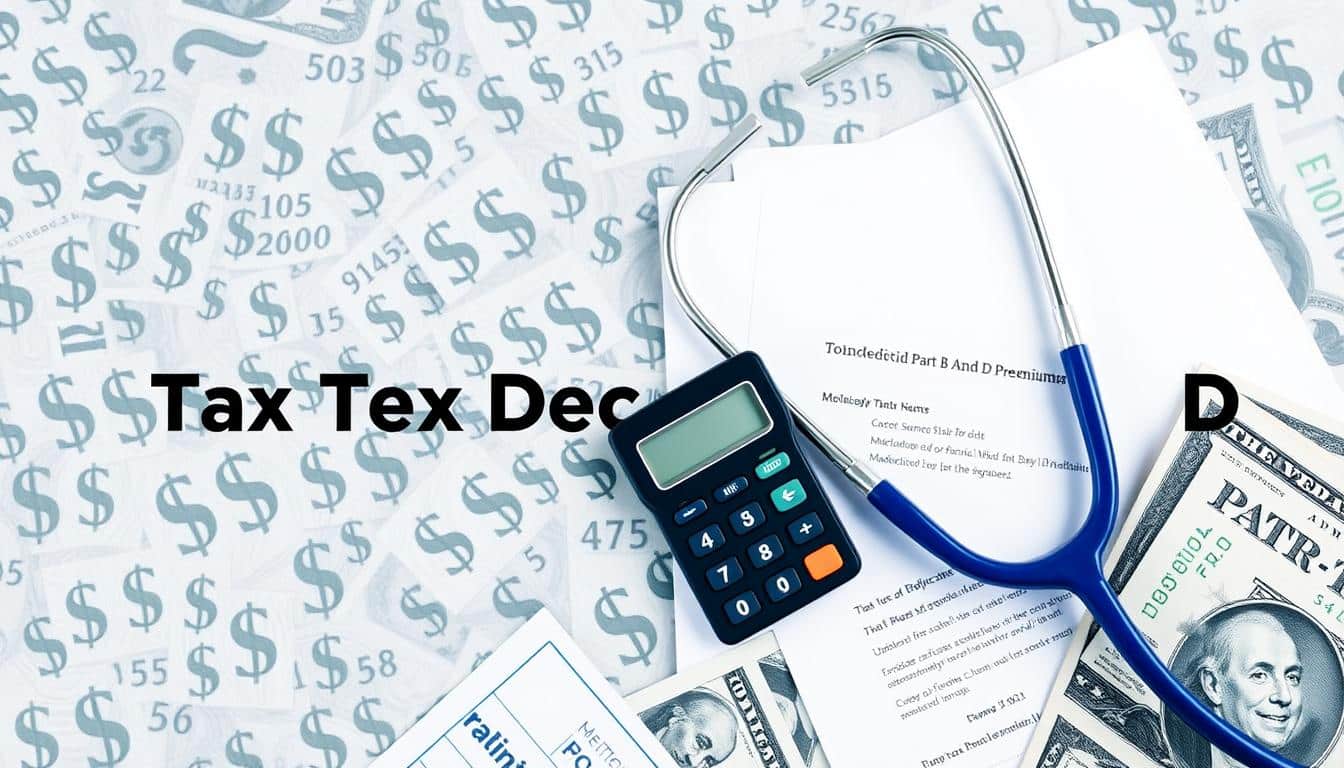Understanding tax laws can be tricky, especially when it comes to medical expenses. You might ask, “Can I deduct Medicare Part B premiums on my taxes?” Yes, you can deduct Medicare Part B & D premiums, along with other healthcare costs.
To get a deduction, your medical and dental expenses must be over 7.5% of your adjusted gross income (AGI). This includes Medicare Part A, B, C, D, and Medigap premiums. If you meet these requirements, you could reduce your taxes.
It’s important to know what medical expenses you can deduct. This list includes hearing aids, psychiatric care, and even transportation for health reasons. But, things like cosmetic surgeries, vitamins, and over-the-counter drugs aren’t deductible. We’ll go into more detail about what you can and can’t deduct.
Key Takeaways
- Eligible expenses must exceed 7.5% of your adjusted gross income.
- You can include premiums for Medicare Part B, Part D, and Medigap in your deductions.
- Non-deductible expenses include cosmetic surgery and nonprescription drugs.
- Self-employed individuals have special rules for deducting Medicare premiums.
- Collect proper documentation like SSA-1099 forms to validate deductible Medicare premiums.
Understanding Tax Deductibility of Medicare Part B & D Premiums
Figuring out the tax benefits of Medicare Part B and Part D premiums can be tricky. But don’t worry, there’s a clear guide from the IRS. It tells you if you can write off your Medicare premiums.
Criteria for Tax Deductibility
You need to itemize your deductions to qualify. The standard deduction won’t work here. After itemizing, your total medical expenses, including Medicare Part B and Part D premiums, must be over 7.5% of your adjusted gross income (AGI). In 2024, Medicare Part B’s monthly premium is $174.70, which could help you meet this requirement.
Eligible Medical Expenses
Wondering what counts as eligible? Eligible items include Medicare Parts A through D and Medicare Supplement Insurance (Medigap) premiums. Other qualifying expenses like deductibles, copays, and non-covered services can also help you reach the 7.5% AGI threshold. These deductions could lead to big savings. Just remember to keep your SSA-1099 and Medicare summary notices on hand to back up your deductions.
Non-Eligible Medical Expenses
Not everything is eligible for deductions. Items like vitamins, non-prescription drugs, elective cosmetic surgeries, and vacations don’t qualify. Also, funeral expenses and treatments not approved by the FDA aren’t deductible. So, keep your receipts, but don’t include them in your Medicare Part B and Part D premiums tax write-off.
Special Cases: Self-Employed and HSA Usage
Being self-employed changes the tax game, offering special chances that many miss. The tax benefits of Medicare Part B & D premiums are key, especially when combined with medigap premiums tax deductions. Using Health Savings Accounts (HSAs) can bring big benefits.
Self-Employed Deduction Rules
If you work for yourself, you have a big advantage with deductions. You can deduct Medicare premiums directly from your income before taxes. But, this deduction depends on your self-employment income. If you use a partnership or S corporation to pay for these premiums, you must follow certain rules. This can greatly reduce your taxes, making the Medicare supplement premiums tax deduction very helpful.
Health Savings Account (HSA) Reimbursements
HSAs add another level of tax savings. You can deduct money you put into these accounts, and taking money out for medical costs is tax-free. Imagine lowering your taxes while still paying for medical bills. Using an HSA to pay for Medicare premiums is a smart move for saving on taxes. Knowing how to use medigap premiums tax deductions and HSAs is key for your financial health now and later.
In conclusion, there’s more to explore than just the basics. Whether you’re looking at medigap premiums tax deductions or using HSAs, the goal is to make smart financial choices. This way, you’re not just following the tax rules—you’re getting the most out of them.








